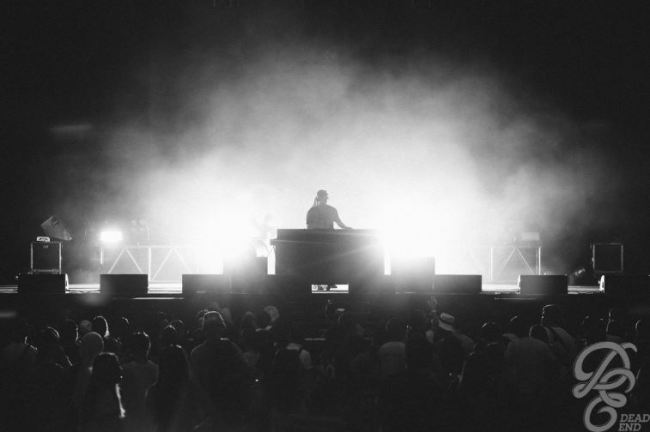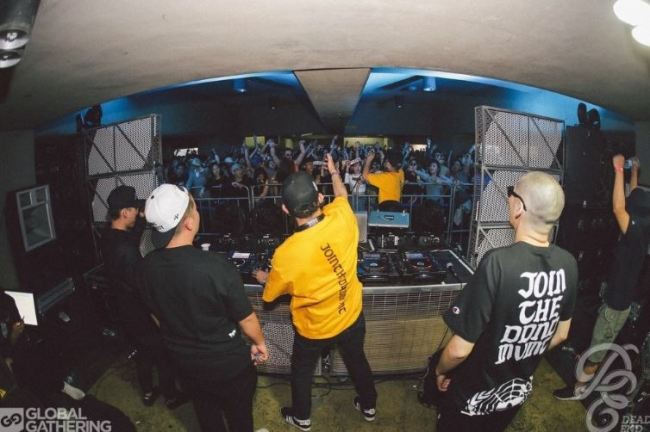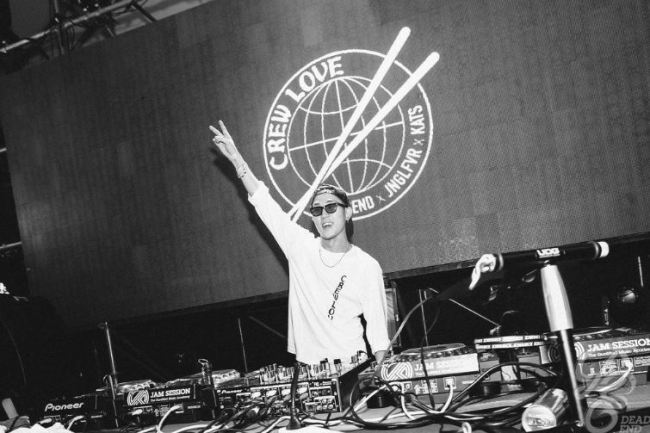[Weekender] DJ, an evolution from turntablist to performance master
By KH디지털2Published : Dec. 18, 2015 - 17:22
Clubs are a cultural touchpoint, where music, fashion, visual art and performing arts intersect, influence and blend with one another, says DJ Kingmck
A DJ, or disc jockey, is much more than just a person who plays recorded music for the audience -- he or she is the director of the performance, headliner of the night’s show, and a trademark of the club industry.
A DJ, or disc jockey, is much more than just a person who plays recorded music for the audience -- he or she is the director of the performance, headliner of the night’s show, and a trademark of the club industry.

Amid the fast-changing cultural trends of these days, it is also an occupation that needs to be redefined in a comprehensive perspective, according to a practicing DJ.
‘It may seem ironic but the more people become acquainted with DJ-led club scenes, the more DJs are choosing to write off the term ‘DJ’ from their stage name,” DJ Kingmck, or Kim Min-chan, told The Korea Herald in an interview.
“They would rather see themselves as a performance curator, a master director of the live music show that they perform on stage.”
‘It may seem ironic but the more people become acquainted with DJ-led club scenes, the more DJs are choosing to write off the term ‘DJ’ from their stage name,” DJ Kingmck, or Kim Min-chan, told The Korea Herald in an interview.
“They would rather see themselves as a performance curator, a master director of the live music show that they perform on stage.”

The 26-year-old DJ made his name by becoming the final winner in Headliner, a DJ survival audition program aired by Mnet in September-October this year.
“When the production staff wanted to cast me, I thought of turning down the offer concerned that the program may highlight specific features of DJing and increase the general public’s prejudice against the culture,” Kingmck said.
“Fortunately, the experience ended up being of great help, not only for my personal music career but also to our industry in general.”
“When the production staff wanted to cast me, I thought of turning down the offer concerned that the program may highlight specific features of DJing and increase the general public’s prejudice against the culture,” Kingmck said.
“Fortunately, the experience ended up being of great help, not only for my personal music career but also to our industry in general.”

As music festivals and club gatherings have become popular, an increasing number of celebrities -- most of them nonprofessionals in music -- fancy themselves as DJs. The most famous example is Park Myeong-soo, comedian and owner of electronic dance music studio G-Park.
“I certainly don’t mean to blame him for describing EDM in a comical way,” Kingmck said.
“After all, his casual approach could lower the entry barrier for the general public who are not yet familiar with the genre.”
But the rise of such amateur DJs also led him to think that it may now be high time for the DJ-led party culture to step forward to the center of public attention.
“I certainly don’t mean to blame him for describing EDM in a comical way,” Kingmck said.
“After all, his casual approach could lower the entry barrier for the general public who are not yet familiar with the genre.”
But the rise of such amateur DJs also led him to think that it may now be high time for the DJ-led party culture to step forward to the center of public attention.

A competent DJ should be able to produce a creative music set and perform a solo show, be it in a small underground club or on an international festival stage, according to the musician.
In an industry that is still heavily reliant on overseas music sources, creativity is indeed a challenge.
“I personally believe that an artist, in order to claim credit for an art production, should have a contribution of 90 percent or more,” Kingmck said.
“But Korea’s entertainment industry is mostly led by powerhouse agencies, which is why it is hard for budding artists to fully develop their creativity.”
Another obstacle is the discrimination against local DJs, he added.
“Most well-known clubs in Gangnam pay the main DJ 150,000 won ($127) per night, while they would spend tens of thousands of won inviting overseas DJs for a single night’s performance.”
In an industry that is still heavily reliant on overseas music sources, creativity is indeed a challenge.
“I personally believe that an artist, in order to claim credit for an art production, should have a contribution of 90 percent or more,” Kingmck said.
“But Korea’s entertainment industry is mostly led by powerhouse agencies, which is why it is hard for budding artists to fully develop their creativity.”
Another obstacle is the discrimination against local DJs, he added.
“Most well-known clubs in Gangnam pay the main DJ 150,000 won ($127) per night, while they would spend tens of thousands of won inviting overseas DJs for a single night’s performance.”

Such challenges in the market are the reason that Kingmck and his colleagues decided to create a club scene crew named “Deadend Movement” four years ago.
“In the U.S., it is common and natural to describe pop singer Justin Bieber as a featuring artist to DJ producer Skrillrex,” the artist said.
“But in Korea, DJ producers are hardly ever given credit for their work.”
For instance, one of the recent title tracks of K-pop star group EXO was produced by a DJ producer named Steve Woo but his name was never mentioned in the album’s promotion campaigns, he explained.
But as front-runner in the business, Kingmck saw the good sides of Korea’s club scene and claims that it will open the floor to a wider variety of youth culture.
“Clubs are where everything starts. They are a cultural touchpoint where music, fashion, visual arts and performing arts all intersect, influence and blend with one another,” he said.
The club party culture is also changing the communication method of the young generation.
“These people in their early 20s are used to spending their weekend nights at clubs and unlike previous generations, feel quite comfortable socializing with others in open space,” Kingmck said.
Such a change of attitude also explains the recent trend that places much focus on communication, collaboration and integration, he claimed.
“It may sound like a far stretch, especially to the senior generation, but I believe that the club scene culture is the core of it all.”
By Bae Hyun-jung (tellme@heraldcorp.com)
“In the U.S., it is common and natural to describe pop singer Justin Bieber as a featuring artist to DJ producer Skrillrex,” the artist said.
“But in Korea, DJ producers are hardly ever given credit for their work.”
For instance, one of the recent title tracks of K-pop star group EXO was produced by a DJ producer named Steve Woo but his name was never mentioned in the album’s promotion campaigns, he explained.
But as front-runner in the business, Kingmck saw the good sides of Korea’s club scene and claims that it will open the floor to a wider variety of youth culture.
“Clubs are where everything starts. They are a cultural touchpoint where music, fashion, visual arts and performing arts all intersect, influence and blend with one another,” he said.
The club party culture is also changing the communication method of the young generation.
“These people in their early 20s are used to spending their weekend nights at clubs and unlike previous generations, feel quite comfortable socializing with others in open space,” Kingmck said.
Such a change of attitude also explains the recent trend that places much focus on communication, collaboration and integration, he claimed.
“It may sound like a far stretch, especially to the senior generation, but I believe that the club scene culture is the core of it all.”
By Bae Hyun-jung (tellme@heraldcorp.com)





![[Herald Interview] 'Amid aging population, Korea to invite more young professionals from overseas'](http://res.heraldm.com/phpwas/restmb_idxmake.php?idx=644&simg=/content/image/2024/04/24/20240424050844_0.jpg&u=20240424200058)











![[KH Explains] Korean shipbuilding stocks rally: Real growth or bubble?](http://res.heraldm.com/phpwas/restmb_idxmake.php?idx=652&simg=/content/image/2024/04/25/20240425050656_0.jpg&u=)

